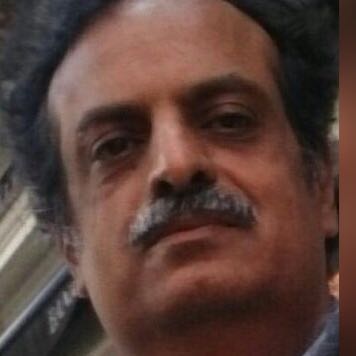- Home
- Medical news & Guidelines
- Anesthesiology
- Cardiology and CTVS
- Critical Care
- Dentistry
- Dermatology
- Diabetes and Endocrinology
- ENT
- Gastroenterology
- Medicine
- Nephrology
- Neurology
- Obstretics-Gynaecology
- Oncology
- Ophthalmology
- Orthopaedics
- Pediatrics-Neonatology
- Psychiatry
- Pulmonology
- Radiology
- Surgery
- Urology
- Laboratory Medicine
- Diet
- Nursing
- Paramedical
- Physiotherapy
- Health news
- Fact Check
- Bone Health Fact Check
- Brain Health Fact Check
- Cancer Related Fact Check
- Child Care Fact Check
- Dental and oral health fact check
- Diabetes and metabolic health fact check
- Diet and Nutrition Fact Check
- Eye and ENT Care Fact Check
- Fitness fact check
- Gut health fact check
- Heart health fact check
- Kidney health fact check
- Medical education fact check
- Men's health fact check
- Respiratory fact check
- Skin and hair care fact check
- Vaccine and Immunization fact check
- Women's health fact check
- AYUSH
- State News
- Andaman and Nicobar Islands
- Andhra Pradesh
- Arunachal Pradesh
- Assam
- Bihar
- Chandigarh
- Chattisgarh
- Dadra and Nagar Haveli
- Daman and Diu
- Delhi
- Goa
- Gujarat
- Haryana
- Himachal Pradesh
- Jammu & Kashmir
- Jharkhand
- Karnataka
- Kerala
- Ladakh
- Lakshadweep
- Madhya Pradesh
- Maharashtra
- Manipur
- Meghalaya
- Mizoram
- Nagaland
- Odisha
- Puducherry
- Punjab
- Rajasthan
- Sikkim
- Tamil Nadu
- Telangana
- Tripura
- Uttar Pradesh
- Uttrakhand
- West Bengal
- Medical Education
- Industry
DNB Equivalent to MD, matter with Health Ministry: Dr Abhijat Sheth, President NBE

New Delhi: With the DNB candidates, pursuing their degrees at Hospitals not recognized by MCI, severely disadvantaged with the amendments to the The Minimum Qualifications for Teachers in Medical Institutions Regulations, 1998, National Board of Examinations, the government body awarding DNB qualifications has taken up the matter with the Ministry of Health & Family Welfare, Government of India on the Equivalence Issue
Medical Dialogues Team had earlier reported that under the rules, DNB candidates would have to do an additional years of service, going upto as high as 5 years, if they wish to pursue a career in Medical Academia. Those who pass out from private hospitals which are not recognised by MCI as medical colleges would have to additionally do two years of Senior Residency to be eligible for post of Assistant Professorship. Moreover, Rules for Senior Residency states that DNB degree holders they can join as a senior resident only when they have passed out for MCI recognized medical college/ Central institute. If they have passed DNB degree from a non MCI recognized medical college/ institute they have to do 3 years of Junior residency to join as a senior resident to be further eligible for a teaching post of assistant professor.
Read more at Medical Dialogues: MCI knocks DNBs out of academia
The move has created ripples in the Medical Profession, which is coming in a scenario, where the government is making conscious efforts to increase both MD and DNB seats in the country, to meet the acute shortage of Doctors. The move has been indeed criticized in the light, that on one hand, the government is considering increasing the retirement age of medical faculty from 70 to 75 years and has also revised the faculty student ratio in medical colleges, yet it is imposing restrictions and limitations on an army of readily available qualified physicians that can possibly join medical academia and ease pressure on the medical education system
Read Also: MCI Clarification on Teachers Eligibility Rules; Check out the details
Responding to the amendments, Dr Abhijat Sheth, President, National Board of Examinations said ," It is unfortunate that such confusion about the two streams of qualification has arisen. The DNB programme is a model programme delivering educational opportunities to all aspiring medical graduates who couldn't participate in MD/MS courses for various reasons. The DNB course uses available health care institution infrastructure effectively and optimize cost of medical education delivery which positively contributes in achieving policy objectives of the Government."
Dr. Sheth further clarified that MD/MS and DNB qualifications are equivalent as an accepted principle following conclusion by the Govt. of India and the Supreme Court. Responding on the additional training given the equivalence of the two degrees, he said " The Government of India directives do not provide for placing any additional barriers to the DNB degree holders for the appointment to teaching positions. The DNB degree holders once certified are fully equivalent for employment to teaching positions in terms of the decision so prescribed by the Government of India."
He stressed on the important role of DNB candidates in the field of medical education. " Medical Education in the country is expanding at a faster pace to meet the health care needs of the country. The pool of available specialists across DNB and MD/MS courses in the country should be effectively utilized to meet the futuristic demands of the health care and medical education sector."
Dr Sheth has informed Medical Dialogues that they have taken up the issue with the Minsitry of health. "National Board of Examinations has responded sensibly to the concern of MD/MS equivalence with DNB degree and taken up the matter with the Ministry of Health & Family Welfare, Government of India for their kind consideration. The NBE is fully committed for the cause of the DNB degree holders, medical institutions and fraternity at large," he added.
Meghna A Singhania is the founder and Editor-in-Chief at Medical Dialogues. An Economics graduate from Delhi University and a post graduate from London School of Economics and Political Science, her key research interest lies in health economics, and policy making in health and medical sector in the country. She is a member of the Association of Healthcare Journalists. She can be contacted at meghna@medicaldialogues.in. Contact no. 011-43720751


